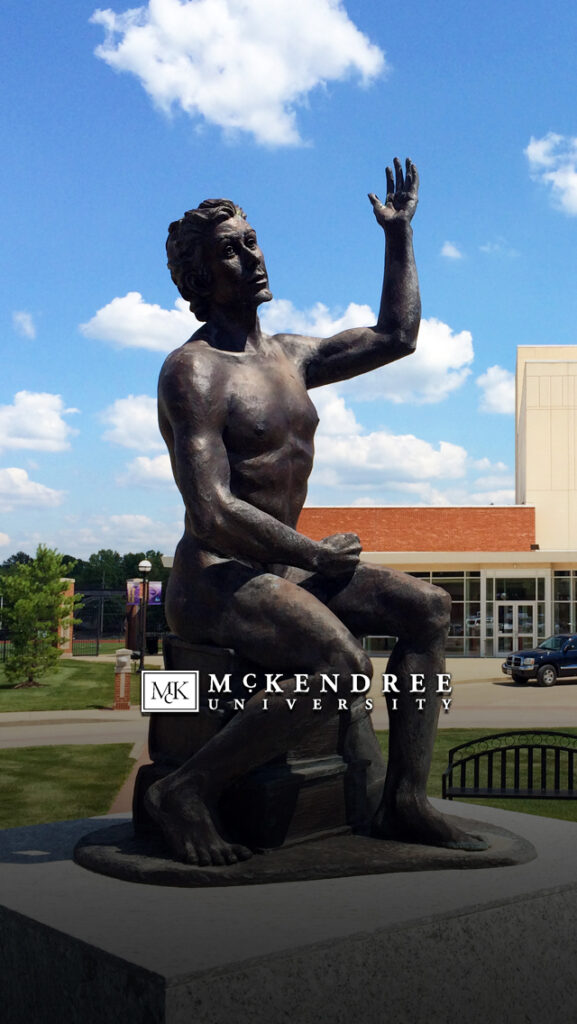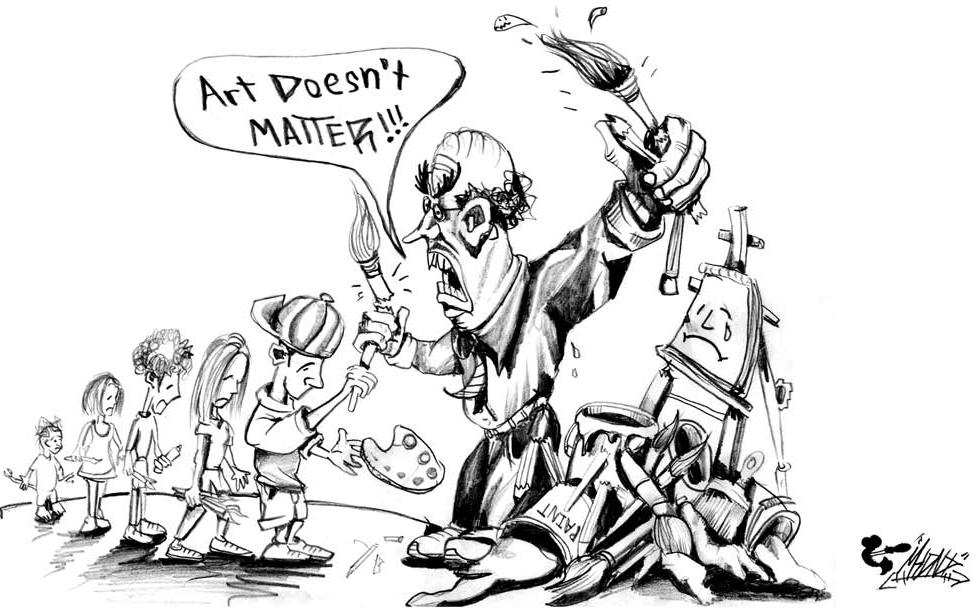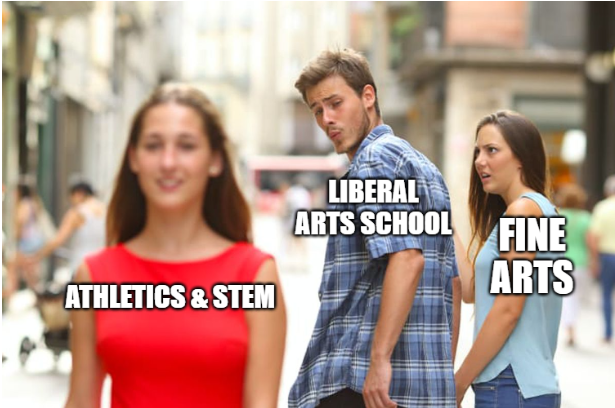
By Katherine Gemmingen, former Review Head Copyeditor and contributing writer
Photos from imgflip.com, unfspinnaker.com, mckendree.edu, and clipart-library.com
You might remember me as the Review’s Head Copyeditor from late 2018 to summer 2020. I worked with a team of editors on some of the Review’s greatest hits, including “McKendree Does Not Care About You,” most notably. My time on the staff for the Review was truly one of the best parts of my McKendree experience.
Fellow editors Magda Knapp and Victoria Sananikone and I worked incredibly hard to rebuild the Review. I felt confident upon graduation in 2020 that the new staff would maintain the Review. Imagine my disbelief when I heard from a current staff editor on May 7th, the day I travelled back to campus for the rescheduled class of 2020 graduation, that a number of programs are being cut at McKendree. I listened as I was given details about how programs like journalism and Spanish were deemed unworthy of saving as part of “program prioritization.”
The loss of Gabe Shapiro as a faculty member at McKendree also means the loss of an advisor for the Review. While I’ve heard that the English department is working to save the Review (and I can think of no better team to do so), it is shocking and saddening to hear that such a big part of McKendree’s history was nearly (and still could be) on the chopping block.
While the Review has been published online for a short number of years, readers should note that the Review is an integral part of McKendree’s history. Should it be continued through November 15th of this year, it will actually celebrate 100 years. Since 1921, the Review has provided news and editorials to generations of students. The original motto of the Review was “Devoted to the Interests of McKendree,” and it has continually served that purpose.
Before I get called out for whining about how the Review could be on its way out, let me be clear: my gripe is with the larger situation.
McKendree—like every other institution—has been hurting financially for a while now, which has been increased by the pandemic. Its financial troubles are not to be discounted. In order for there to be any programs at all, McKendree must have funds.
But financial struggles do not mean that cutting academic programs is the correct way to solve the issue. McKendree cites low enrollment and interest in these programs (journalism, Spanish, international relations, theatre, etc.) as a way to justify its claims that the costs of the programs outweigh their benefits.
Make no mistake, these programs are indeed small. I speak from experience that small programs at McKendree struggle to survive. My own minor, professional writing and rhetoric, was salvaged just enough for most of us enrolled in the program to finish. When programs are cut, students are told not to worry, and that the administration will make sure you can graduate with the requirements. Will the remaining courses complete requirements? Technically, yes. Will they be anywhere near as enriching or relevant to the actual area of focus? No.
By cutting these core liberal arts programs, McKendree makes several mistakes. First, it makes it clear that if you are one of the seven students “directly” impacted by these changes, your interests simply are not important enough. Second, McKendree moves even further away from its identity as a liberal arts university. If that is no longer the university’s focus, then that message needs to be clear because McKendree cannot continue to claim that it is a liberal arts institution while simultaneously cutting core liberal arts programs. Third, McKendree makes the mistake of cutting programs that are extremely relevant to our society.
I did not major in journalism; in fact, I never even took a journalism class at McKendree. I am not a bitter journalist student who is offended by the cutting of the program. But as a citizen of a larger society, I am, frankly, repulsed.
Journalism is a key mechanism in our society. A quick research session brings up countless studies and articles that explain why journalism is needed: accountability for governments and the ability of citizens to make informed decisions in their lives, just to name a couple of reasons.
McKendree needs to consider the reasons why its more traditional liberal arts programs are seeing low numbers. It is not because of a lack of interest. Instead, students see that these programs are not prioritized. Why would they choose a school that clearly does not value what they want to focus on?
Instead of letting programs fizzle out due to lack of popularity, McKendree needs to realize that students are reluctant to enter programs not because they aren’t interested in these subject matters, but because they can see that their chosen path may not even make it through four years at McKendree.
My time as a staff member of the Review has been huge for my life after McKendree. I have just finished my first year at the University of Pittsburgh School of Law. I was hired by a great firm to be a summer intern, and every interview I had during that process involved a moment where the interviewers commented on that experience I had.
Even more telling of how incredibly helpful the Review was for my post-graduate life is the role I get to serve for a publication called JURIST, which is the only law school-based source for legal news and commentary. After spending my first year of law school as a news writer, I’ve moved on to serve as Co-Managing Editor for our Commentary service. My experience with the Review helped me get to where I am.
Last year, I interviewed President Dobbins for an article. He discussed with me how he felt it was important that McKendree work to rebuild its non-student athlete population. I fear that McKendree is only moving backwards in this capacity as more and more programs are cut.
None of this commentary is to blame McKendree’s student athletes. In fact, the addition of a swim team five years ago is the reason I met the person I’ve moved across the country with; McKendree’s athletes put in endless amounts of work that are not to be discounted. But let’s not forget that they are student athletes, there for a degree.
Yes, higher education has struggled financially in recent years, and this has only been worsened by the pandemic. But the way to salvage universities is not to cut academic programs, especially those that are as expected as journalism and theatre; we’re not talking about obscure programs that you’d only see at a select few institutions.
Overall, I would say that I had a positive experience at McKendree, despite the loss of my minor program and the constant reminders that McKendree focuses more on its student athletes than those who are strictly there for academics. After all, McKendree can cut academic programs as prioritization while expanding its sports options with a new rugby team that could make money for the university.
I will close by saying this: McKendree does want to carry out its “One McKendree” framework. However, you’ll only be a part of that One McKendree if you’re in a big academic program and/or an athletic program. Otherwise, McKendree still does not care about you.


